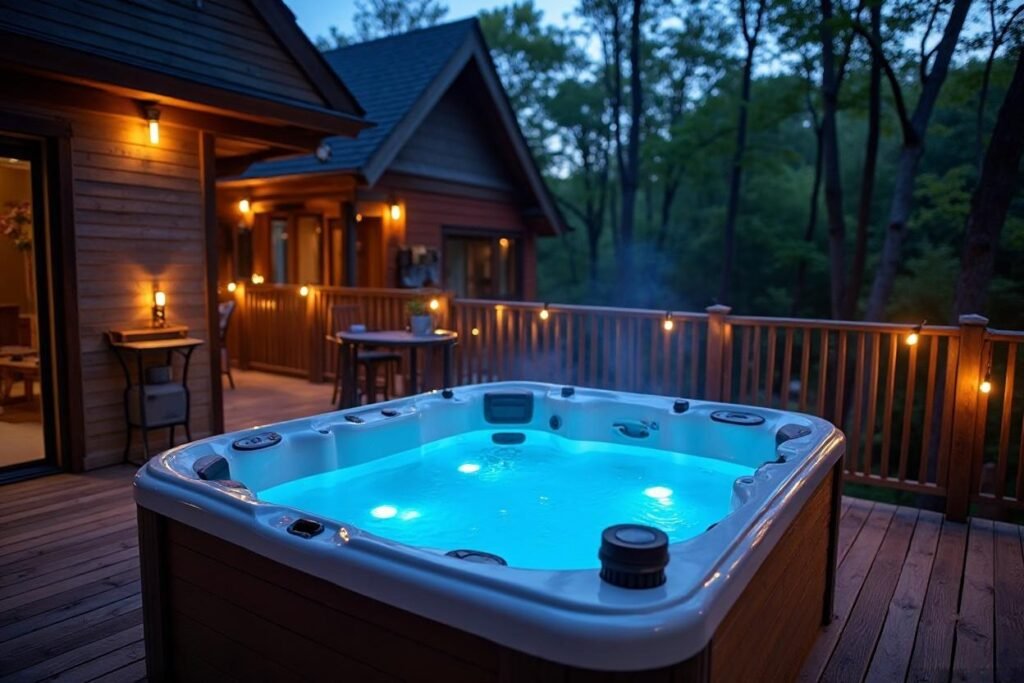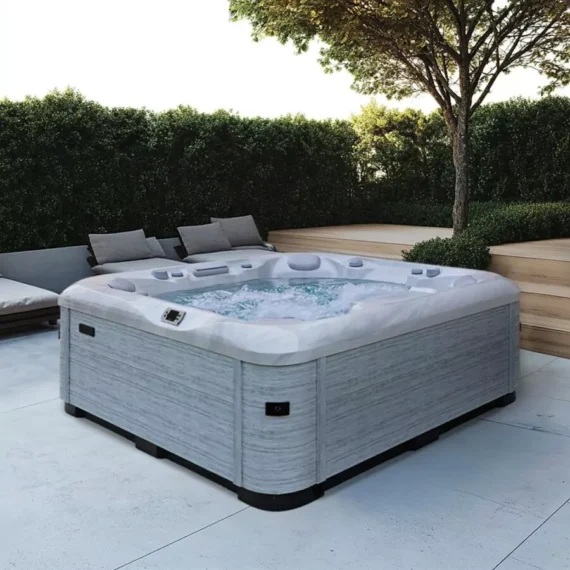Hot Tub Ownership: What to Expect in Electricity Costs and Lifespan
Hot tubs can be a relaxing escape from daily life, offering therapeutic benefits and a fun social space. However, owning a hot tub comes with its own set of responsibilities, especially when it comes to understanding electricity costs and expected lifespan. In this comprehensive guide, we'll explore everything you best hot tubs features Gainesville GA need to know about hot tub ownership, focusing particularly on the Gainesville hot tub market.
Understanding Hot Tub Electricity Costs
What Affects Electricity Usage?
Electricity costs for hot tubs can vary significantly based on several factors:
- Type of Hot Tub: Different models have varying energy requirements. Traditional electric hot tubs typically consume more electricity than inflatable or portable models.
- Heating System: The efficiency of the heating system plays a crucial role. High-efficiency heaters may help reduce overall costs.
- Usage Frequency: How often you use your hot tub directly affects energy consumption. Frequent use leads to higher costs.
- Water Temperature: Keeping the water at a consistently high temperature requires more energy, especially during colder months.
Average Monthly Electricity Costs
On average, you can expect the following monthly electricity costs for your Gainesville hot tub:
| Type of Hot Tub | Average Monthly Cost | |-------------------------|-----------------------| | Standard Electric | $30 - $60 | | Energy-Efficient Model | $20 - $40 | | Inflatable | $15 - $25 |
These numbers can fluctuate based on local utility rates and personal usage patterns.
Calculating Your Costs
To get a better idea of your specific costs:

Example Calculation: If your heater uses 4,000 watts and runs for 5 hours a day: [ \textDaily Consumption = (4000 \text watts \times 5 \text hours) / 1000 = 20 \text kWh ] If your rate is $0.12 per kWh: [ \textDaily Cost = 20 \text kWh \times 0.12 = \$2.40 ] Thus, monthly costs would total roughly \$72.
Lifespan of Hot Tubs: What to Expect
General Lifespan Expectations
The lifespan of a hot tub depends on various factors including maintenance practices and overall build quality. Here's what you can generally expect:
- Fiberglass Hot Tubs: These typically last between 20-25 years with proper care.
- Acrylic Hot Tubs: Usually have a lifespan of around 15-20 years.
- Inflatable Models: Generally last about 3-5 years depending on usage and care.
How Maintenance Affects Lifespan
Regular maintenance can significantly extend the life of your hot tub:
Common Repairs and Their Costs
Over time, some common repairs may arise which could affect your budget:
| Repair Type | Average Cost | |---------------------------|-------------------| | Heater Replacement | $300 - $600 | | Pump Replacement | $200 - $400 | | Shell Repair | $100 - $500 |
Being proactive about maintenance can prevent these costs from adding up over time.
Choosing the Right Hot Tub for Your Needs
Factors to Consider When Buying
When looking at Gainesville hot tubs, consider the following factors:
Energy Efficiency Ratings
Look for models that are energy-efficient as they will save you money over time on electricity bills while also being better for the environment.

Setting Up Your Hot Tub in Gainesville
Location Matters
Choose a location that is easily accessible but also offers privacy if desired:
- Ensure it's near an electrical outlet.
- Avoid placing it under trees where debris could fall in.
Permitting Requirements in Georgia
Before installation, check local regulations regarding permits for installing a hot tub in Gainesville or surrounding areas.
Safety Measures for Hot Tub Owners
Electrical Safety Tips
Always ensure that your hot tub complies with electrical codes:
Water Safety Practices
Regularly check water quality to prevent illnesses related to bacteria or algae growth.
FAQs About Hot Tub Ownership
1. How often should I change the water?
You should change the water every three to four months depending on usage levels.
2. Can I leave my hot tub running all year?
Yes, but be aware that it will increase electricity costs during colder months unless winterized properly.
3. What’s the best way to maintain water temperature?
Insulate your hot tub with a quality cover when not in use; this saves energy by preserving heat.
4. Are inflatable models worth it?
They’re great for temporary use but typically don’t last as long as traditional models.

5. What are common issues with older hot tubs?
Older models may experience leaks or heating problems more frequently than newer ones.
6. Is there an ideal time of year to buy one?
Typically, late fall or early winter offers discounts as demand decreases post-summer season.
Conclusion
Hot tub ownership brings joy but also responsibility regarding electricity costs and maintenance practices over time—especially within communities like Gainesville where climate considerations come into play. By understanding these elements—ranging from initial setup decisions through long-term upkeep—you’ll ensure both relaxation and efficiency in enjoying your personal oasis right at home!
By considering all these aspects together—electricity usage estimates along with lifespans—you’ll make informed choices that enhance both enjoyment and budget management throughout ownership of your very own Gainesville hot tub!